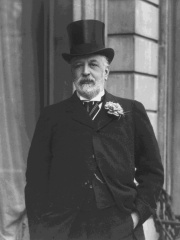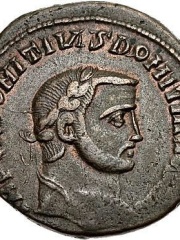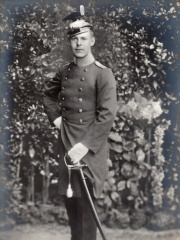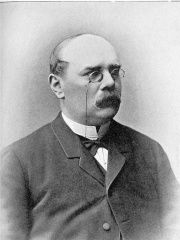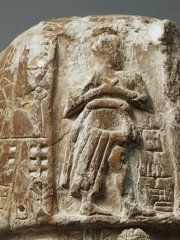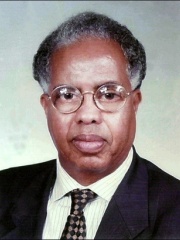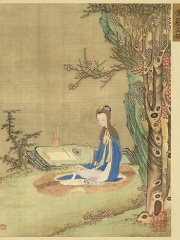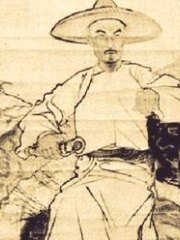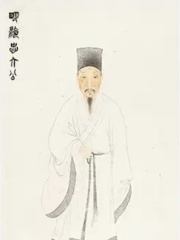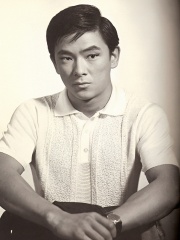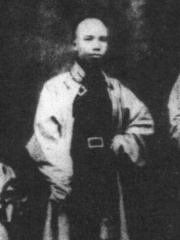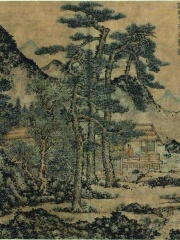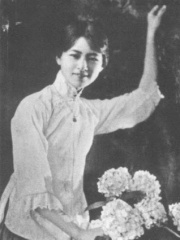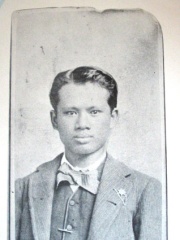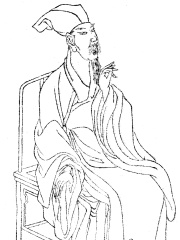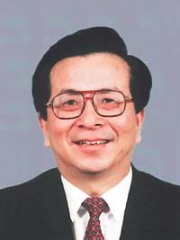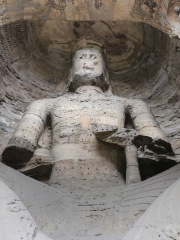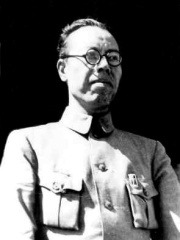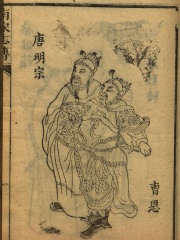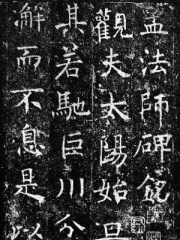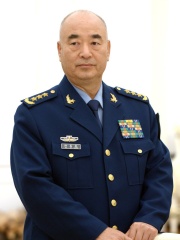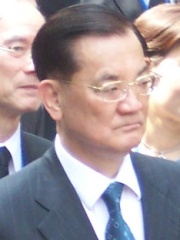Politician
Wang Can
177 - today
EN.WIKIPEDIA PAGE VIEWS (PV)

 Wang Can
Wang Can
Wang Can (177 – 17 February 217), courtesy name Zhongxuan, was a Chinese politician and poet who lived during the late Eastern Han dynasty of China. He contributed greatly to the establishment of laws and standards during the founding days of the vassal kingdom of Wei – the forerunner of the state of Cao Wei in the Three Kingdoms period – under the warlord Cao Cao, who was the de facto head of the Han central government in the final years of the Eastern Han dynasty. For his literary achievements, Wang Can was ranked among the Seven Scholars of Jian'an. Wang Can was also renowned for his eidetic memory. Read more on Wikipedia
His biography is available in 17 different languages on Wikipedia. Wang Can is the 11,189th most popular politician (down from 11,058th in 2024), the 722nd most popular biography from China (up from 744th in 2019) and the 378th most popular Chinese Politician.
Memorability Metrics
Page views of Wang Can by language
Among Politicians
Among politicians, Wang Can ranks 11,189 out of 19,576. Before him are Jacob Tullin Thams, Nathan Rothschild, 1st Baron Rothschild, Domitius Domitianus, Gottfried, Prince of Hohenlohe-Langenburg, Erich von Hornbostel, and Eudokia Baïana. After him are Robert Themptander, Xavier Bettel, Jason of Pherae, Lucius Afranius, Aga of Kish, and Nur Hassan Hussein.
Most Popular Politicians in Wikipedia
Go to all RankingsJacob Tullin Thams
1898 - 1954
HPI: 60.15
Rank: 11,189
Nathan Rothschild, 1st Baron Rothschild
1840 - 1915
HPI: 60.15
Rank: 11,190
Domitius Domitianus
300 - 297
HPI: 60.15
Rank: 11,191
Gottfried, Prince of Hohenlohe-Langenburg
1897 - 1960
HPI: 60.15
Rank: 11,192
Erich von Hornbostel
1877 - 1935
HPI: 60.15
Rank: 11,193
Eudokia Baïana
900 - 901
HPI: 60.15
Rank: 11,194
Wang Can
177 - Present
HPI: 60.15
Rank: 11,195
Robert Themptander
1844 - 1897
HPI: 60.14
Rank: 11,196
Xavier Bettel
1973 - Present
HPI: 60.14
Rank: 11,197
Jason of Pherae
500 BC - 370 BC
HPI: 60.14
Rank: 11,198
Lucius Afranius
150 BC - 46 BC
HPI: 60.14
Rank: 11,199
Aga of Kish
HPI: 60.14
Rank: 11,200
Nur Hassan Hussein
1937 - 2020
HPI: 60.14
Rank: 11,201
Contemporaries
In China
Among people born in China, Wang Can ranks 722 out of NaN. Before him are Wu Jingzi (1701), Fan Bingbing (1981), Hai Rui (1514), Jimmy Wang Yu (1943), Tan Sitong (1865), and Consort Ban (-48). After him are Can Xue (1953), Ma Huateng (1971), Wang Meng (1308), King Hu (1932), Ng Man-tat (1952), and Lin Huiyin (1904).
Others born in China
Go to all RankingsWu Jingzi
WRITER
1701 - 1754
HPI: 60.23
Rank: 716
Fan Bingbing
ACTOR
1981 - Present
HPI: 60.22
Rank: 717
Hai Rui
POLITICIAN
1514 - 1587
HPI: 60.21
Rank: 718
Jimmy Wang Yu
ACTOR
1943 - 2022
HPI: 60.20
Rank: 719
Tan Sitong
PHILOSOPHER
1865 - 1898
HPI: 60.19
Rank: 720
Consort Ban
WRITER
48 BC - 6 BC
HPI: 60.17
Rank: 721
Wang Can
POLITICIAN
177 - Present
HPI: 60.15
Rank: 722
Can Xue
WRITER
1953 - Present
HPI: 60.12
Rank: 723
Ma Huateng
BUSINESSPERSON
1971 - Present
HPI: 60.08
Rank: 724
Wang Meng
PAINTER
1308 - 1385
HPI: 60.03
Rank: 725
King Hu
FILM DIRECTOR
1932 - 1997
HPI: 60.03
Rank: 726
Ng Man-tat
ACTOR
1952 - 2021
HPI: 60.02
Rank: 727
Lin Huiyin
ARCHITECT
1904 - 1955
HPI: 60.01
Rank: 728
Among Politicians In China
Among politicians born in China, Wang Can ranks 378. Before him are Charlie Soong (1861), Zeng Gong (1019), Zeng Qinghong (1939), Emperor Mingyuan of Northern Wei (392), Shi Lang (1621), and Hai Rui (1514). After him are Li Lisan (1899), Li Siyuan (867), Chu Suiliang (597), Xu Qiliang (1950), Emperor Xuanwu of Northern Wei (483), and Lien Chan (1936).
Charlie Soong
1861 - 1918
HPI: 60.42
Rank: 372
Zeng Gong
1019 - 1083
HPI: 60.40
Rank: 373
Zeng Qinghong
1939 - Present
HPI: 60.36
Rank: 374
Emperor Mingyuan of Northern Wei
392 - 423
HPI: 60.27
Rank: 375
Shi Lang
1621 - 1696
HPI: 60.24
Rank: 376
Hai Rui
1514 - 1587
HPI: 60.21
Rank: 377
Wang Can
177 - Present
HPI: 60.15
Rank: 378
Li Lisan
1899 - 1967
HPI: 60.00
Rank: 379
Li Siyuan
867 - 933
HPI: 59.97
Rank: 380
Chu Suiliang
597 - 658
HPI: 59.92
Rank: 381
Xu Qiliang
1950 - 2025
HPI: 59.83
Rank: 382
Emperor Xuanwu of Northern Wei
483 - 515
HPI: 59.81
Rank: 383
Lien Chan
1936 - Present
HPI: 59.70
Rank: 384

